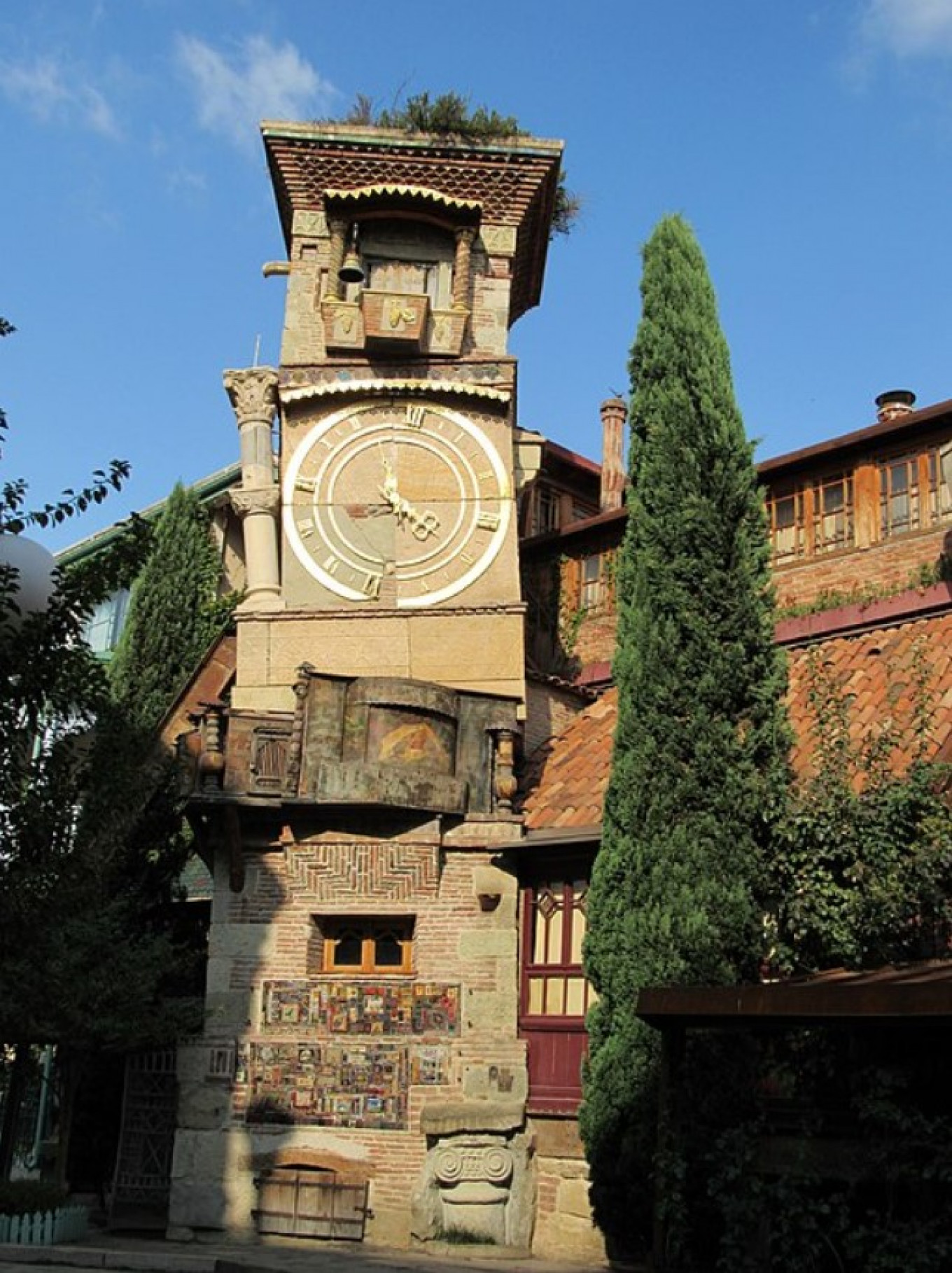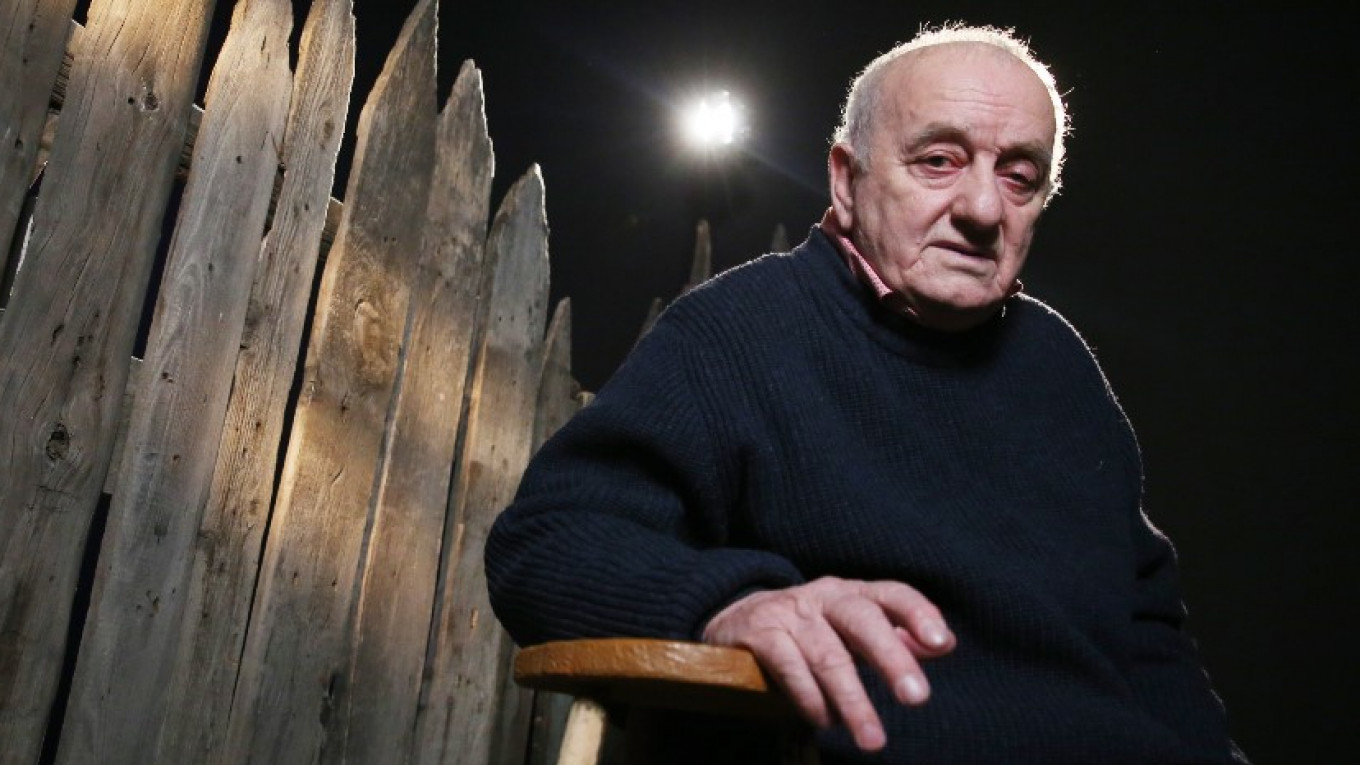Rezo Gabriadze, a writer, screenwriter, artist, sculptor and puppet master, died in Tbilisi, Georgia at the age of 84.
Gabriadze was one of the most beloved cultural figures of the Soviet and post-Soviet era. He was the author of more than 35 screenplays for such movies as “Don’t Grieve” (1969); “Mimino” (1977); and “Kin-dza-dza” (1986).
Despite his success as a director and screenwriter, Gabriadze felt stifled creatively, and so in 1981 he founded a puppet theater in Tbilisi. The theater, ostensibly for children and far from the center of the country, allowed him to tell stories for children and adults without political or ideological interference. The theater building itself — whimsical, off-balance, fantastical — is in itself one of the most famous sites in the Georgian capital. The troupe has toured the world many times.

Gabriadze was also an artist, graphic artist and sculptor. He illustrated more than 50 books, including collections of works by Alexander Pushkin and Daniil Kharms. His works are in the collections of many museums around the world, including the Hermitage in St. Petersburg.
His work as a sculptor can be seen in Odessa and St. Petersburg, where his “Nose of Major Kovalev” graces a house in honor of Nikolai Gogol. He is also the creator of a tiny stone goldfinch sitting on a special perch on the wall of the Fontanka near the First Engineer’s Bridge. The goldfinch (chizhik) is part of the ditty “Chizhik-Pyzhik” composed, legend has it, about the students in the Imperial Law School nearby, whose green and gold uniforms called to mind the yellow feathers of goldfinch and green of a young reindeer (pyzhik).
Over his lifetime, Gabriadze was given many awards, including the State Prize of the USSR, a Nika for his script of the film “Passport,” and the Commander of the Order of Arts and Letters of the French Republic.
Information about funeral arrangements is not yet available.
A Message from The Moscow Times:
Dear readers,
We are facing unprecedented challenges. Russia's Prosecutor General's Office has designated The Moscow Times as an "undesirable" organization, criminalizing our work and putting our staff at risk of prosecution. This follows our earlier unjust labeling as a "foreign agent."
These actions are direct attempts to silence independent journalism in Russia. The authorities claim our work "discredits the decisions of the Russian leadership." We see things differently: we strive to provide accurate, unbiased reporting on Russia.
We, the journalists of The Moscow Times, refuse to be silenced. But to continue our work, we need your help.
Your support, no matter how small, makes a world of difference. If you can, please support us monthly starting from just $2. It's quick to set up, and every contribution makes a significant impact.
By supporting The Moscow Times, you're defending open, independent journalism in the face of repression. Thank you for standing with us.
Remind me later.






